Writing: Poetry
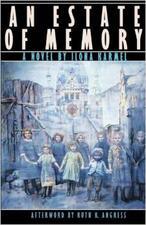
Ilona Karmel
Ilona Karmel transformed details of her experiences as a Polish-Jewish prisoner in Nazi work camps and as a patient undergoing a prolonged convalescence into two compelling and memorable novels. Karmel was a distinguished writer, winning a fiction contest from Mademoiselle and teaching awards from the Massachusetts Institute of Technology.
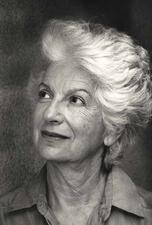
Shirley Kaufman
Shirley Kaufman’s poetry deals with family relationships, personal identity, aging and death, violence, and the meaning of Jewish fate. Moving to Israel later in life, she worked on many translations of Hebrew poetry and was noted for her series of poems about the suffering of women in the Bible, set in modern Israel.
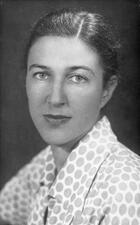
Nancy Florence Keesing
Nancy Keesing was an influential figure on the Australian literary scene, not only as an author, editor, and critic, but also as an advocate and administration. She wrote poetry and ensured the preservation of nineteenth-century Australian songs and rhymes.
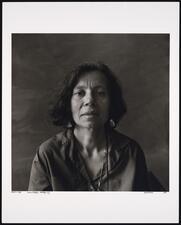
Irena Klepfisz
Irena Klepfisz is a poet whose legacy is key to the history of Jewish, American and lesbian literature. Klepfisz is also a pioneer of the recovery of Jewish and Yiddish women’s writing, to which she has dedicated translations, research, teaching, and activism.
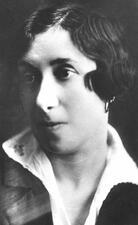
Feiga Izrailevna Kogan
Poet Feiga Izrailevna Kogan was born into the Moscow Jewish community in 1891. Throughout her life she composed books of and about Russian poetry while harboring a love of Hebrew. Some of her works include: Moia dusha (My Soul) and Plamennik (The Torch).
Gertrud Kolmar
Gertrud Kolmar was a prolific German-Jewish poet. Kolmar published three collections of poetry during her lifetime, primarily detailing the experiences of women as mothers, childless women, lovers, mourners, travelers, and the persecuted. Kolmar’s work is a vehicle for readers of the early twenty-first century to come to terms with the events of the Shoah.
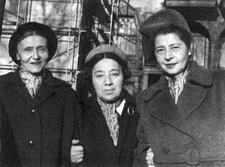
Rokhl Häring Korn
Rokhl Häring Korn is a major figure in modern Yiddish literature. She published eight volumes of poetry and two collections of fiction, much of which focused on themes of homelessness, the upheaval of war, and her experience during the Holocaust.
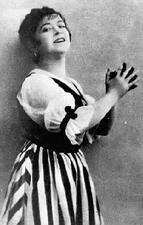
Isa Kremer
Isa Kremer (Belz, Bessarabia, 1887-Córdoba, Argentina, 1956) traveled the world performing art, folk, and classical music. She studied and sang opera in Italy but appeared as an art singer in Odessa, where she was the wife of Israel Heifetz, the editor of The Odessa News. Her great legacy is her Isa Kremer Sings Jewish Life in Song, a book and album of Jewish songs.
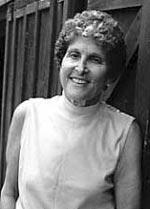
Maxine Kumin
Maxine Kumin is most widely known as a nature poet for her well-crafted descriptions of life on her New Hampshire farm. Yet increasingly her social conscience prompted her also to write “poetry of witness,” protesting torture and other injustices. Her strong Jewish consciousness showed itself in poems about her Jewish ancestors and historic injustices to Jews and in use of sacred Jewish texts to form an environmental message.
Ewa Kuryluk
Ewa Kuryluk is an author, writer, essayist, artist, and art historian. Born in Poland, she did not know for a long time that her mother was a Jew and a member of the underground whose survival had been facilitated by her future husband. Kurlyuk has published in the field of art history, produced art held by museums around the world, and written poetry and novels.
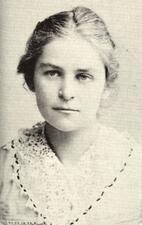
Hedwig Lachmann
Hedwig Lachmann was a poet and translator in Germany around the turn of the twentieth century. In addition to her original poetry, she translated works by Edgar Allan Poe, Oscar Wilde, and Honoré de Balzac.
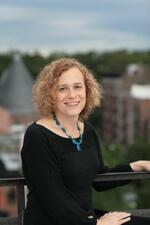
Joy Ladin
Joy Ladin is the Gottesman Professor of English at Stern College, a prolific poet, and a central figure in transgender theology. Her numerous written works reframe classical Jewish theological questions from a transfeminist perspective.
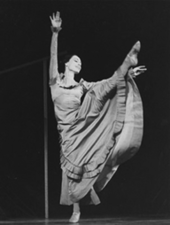
Pearl Lang
Pearl Lang was the first dancer Martha Graham allowed to perform some of Graham’s own roles. She also brought elements of the ecstatic poetry and dance of Jewish traditions to her own praised work.
Shulamit Lapid
Shulamit Lapid is an Israeli-Jewish novelist and playwright born in 1934. Her literary work focuses on feminism, social consciousness, and immigration to Israel.
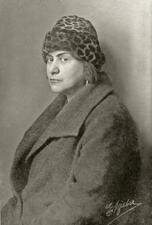
Else Lasker-Schüler
Else Lasker-Schüler was a German-Jewish poet, short story writer, novelist, and playwright. Born in Elberfeld (today part of Wuppertal, Germany) in 1869, Lasker-Schüler is best known for her dream-like, bohemian poetry.
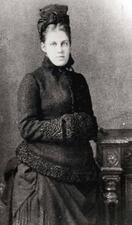
Emma Lazarus
Emma Lazarus (1849-1887), an internationally known poet and essayist, created the role of the American Jewish writer. She lent her voice to the Statue of Liberty to enunciate a vision for America, but she herself was in no doubt about the Jewish roots of her vision in tikkun olam (repairing the world) through righteousness, justice, and compassion.
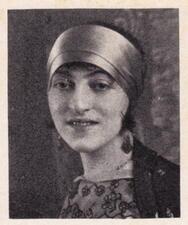
Malka Lee
A writer of lyrical and sometimes sentimental poetry, Malka Lee was one of the most beloved female poets writing in Yiddish in America during her lifetime. Her poems had great folk appeal to Yiddish readers as reflections of their own experiences in the Old World and the New.

Denise Levertov
The author of nineteen books of poetry as well as several books of essays and translations, Denise Levertov was a world-renowned poet. She was also a prominent political activist, particularly in the anti-war and environmental movements.
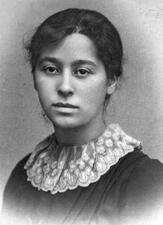
Amy Levy
Novelist, essayist, and poet Amy Levy was a popular and successful writer of the late nineteenth century. Admired by Oscar Wilde, she was the second Jewish woman to attend Cambridge and the first at Newnham College. Her work reflects the autonomous and achievement-oriented ideals of the “New Woman,” as well as her own struggles with depression.
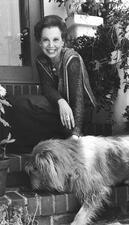
Myra Cohn Livingston
Both through her poetry and her teaching, Myra Cohn Livingston inspired children to explore the music of language. She eventually wrote more than twenty collections of as well as several books on writing poetry, serving as an inspiration for students to enjoy poetry.
Minnie Dessau Louis
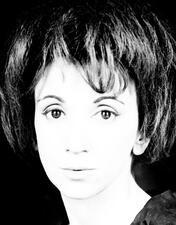
Judith Malina
Judith Malina was an actress, director, and producer who dedicated her life to creating avant-garde, politically charged theater works, and activism. She co-founded the experimental Living Theatre company with her husband; was involved in the antiwar movement, Women Strike for Peace, and the Industrial Workers of the World; and won many honors and awards for her acting and directing work.
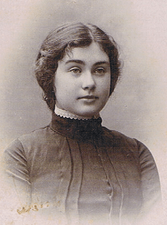
Anna Margolin
Despite her short writing career, Anna Margolin is regarded by literary critics as one of the finest early twentieth-century Yiddish poets in America. She was an active member of a circle of Jewish immigrant intellectuals in New York and her work influenced several major writers of her time, including the Yiddishist Chaim Zhitlovsky.
Lenore Guinzburg Marshall
Lenore Guinzburg Marshall, novelist, poet, activist, and literary editor, pushed her publishing company to publish William Faulkner’s The Sound and the Fury after it had been rejected by twelve other publishers. She published her first novel, Only the Fear, in 1935 and her first poetry collection, No Boundary, in 1943, going on to write poetry, novels, short stories, essays, and a memoir.
Maskilot, Nineteenth Century
Nineteenth-century maskilot were Jewish women proponents of the Haskalah, who wished to take part in the cultural and social revolution it preached. Despite assumptions that the Haskalah was an exclusively male movement, a small number of women read Hebrew literature, wrote in Hebrew, and regarded themselves as part of the Haskalah movement.


